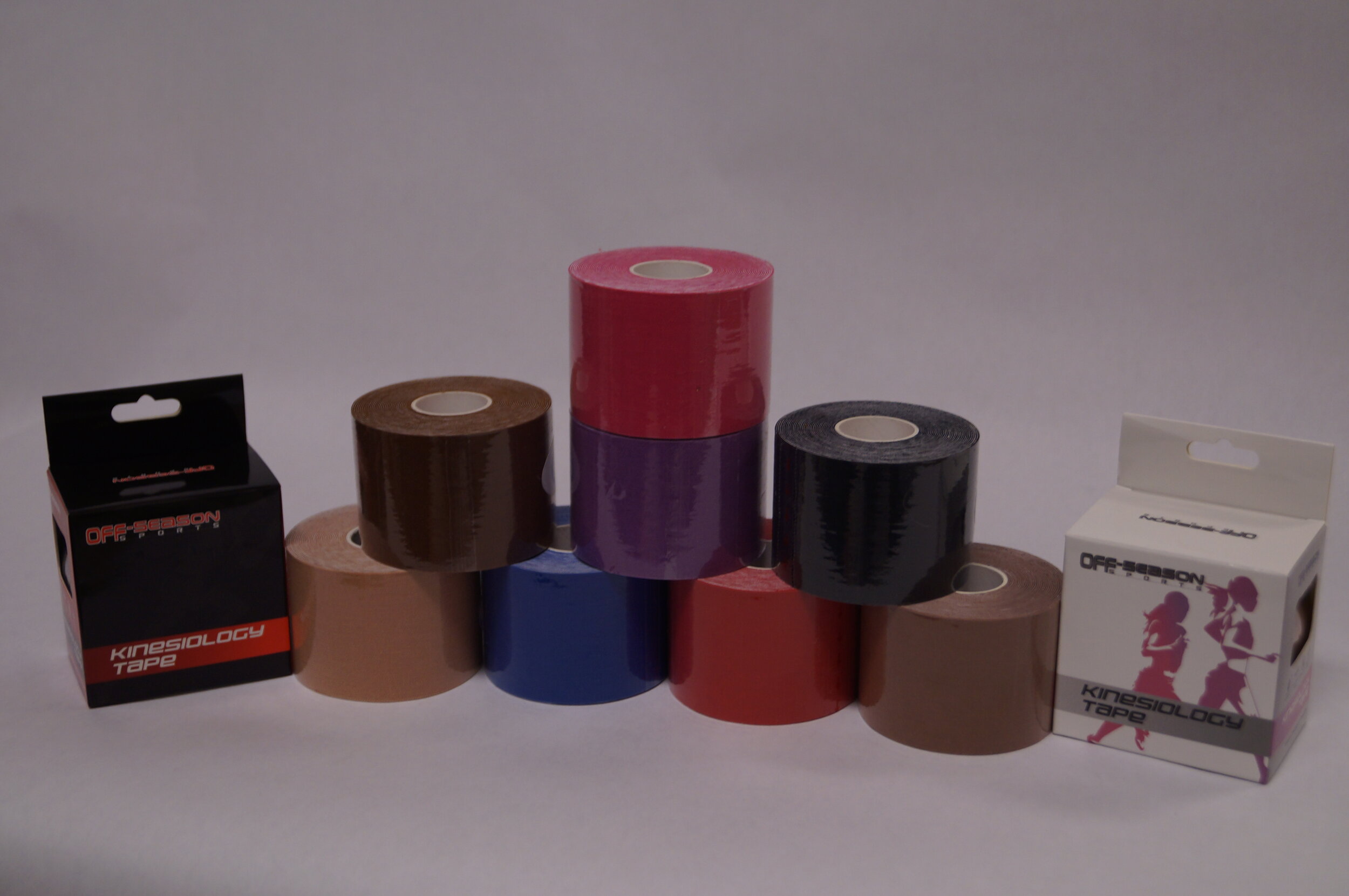Why Kinesiology Therapeutic Tape
When Not To Use KT Tape
Severe allergic reactions to adhesive tape: Kinesiology tape adheres to your skin. If you have a history of a severe allergic reaction to adhesives, you should avoid using the tape. Typically, kinesiology tape is worn during athletic activity, but it can also be worn for many days, and placing your skin in contact with adhesives for a long period of time can lead to serious allergic reactions.
Open wounds: If you have an open wound or surgical incision that is not fully healed, do not use kinesiology tape. The tape could produce a situation where bacteria is introduced into the wound.
Presence of deep vein thrombosis (DVT): A DVT is a blood clot in one of the deep veins of the arm or leg. Using kinesiology tape near the DVT can increase mobility and blood flow. This may cause the clot to become dislodged and may put you at risk for a pulmonary embolism, which may be fatal.
Infection: If you are showing signs of infection, kinesiology tape should not be used, as it may worsen your condition.
Altered sensation: If you have uncontrolled diabetes, you may suffer from peripheral neuropathy, a condition where you may have altered sensation in your legs or arms. Kinesiology tape should not be used if you have diabetes, since you may not know if the tape is causing a reaction or a problem with your skin. Other conditions that cause sensation loss, such as strokes, may also be contraindicated for the same reason.
Active cancer: If you are currently undergoing treatment for cancer, you should avoid using kinesiology tape, since it is thought that the tape increase circulation, and increasing blood flow and nutrition to a cancerous lesion may be dangerous.
Skin sensitivity: If you have sensitive skin, you may use kinesiology tape, but it may irritate your skin. A small test strip of tape can be used for a short time before applying the tape to ensure that your skin can tolerate the adhesives in the tape.
Thin skin (typically seen in the elderly): If your skin is thin due to aging, injury, or as a side effect of medication use, you may wish to avoid using kinesiology tape. The tape may pull on your skin, causing skin breakdown.
Lymph node removal: Some types of kinesiology tape strips are used for lymphedema and swelling management. If you have had lymph node removal, notify your physical therapist so that lymph in your arm or leg is not directed to the area where the node is absent. This could cause worsening of your lymphedema, as the excess fluid would be directed to an area where your body could not manage it.
Congestive heart failure: If the tape directs fluid to a certain area, it can overload the heart and exacerbate heart failure.
Dr. Bourdeau is a certified and licensed Physical Therapist, Athletic Trainer, and Ortho Technologist. Dr. Bourdeau earned his B.S. in Athletic Training At Northeastern University Bouve College of health Sciences in Boston, Massachusetts. He earned his Doctor of Physical Therapy (DPT) at the University of Miami, Miller School of Medicine in Miami, Florida.
We are available for state and federal contract fulfillments.
DUNS #: 081782582
SAM ID#: N59HEPVHH9N9
CAGE/NCAGE #: 98M98
NAICS Code #: 423910
PSC Code #: 6515




